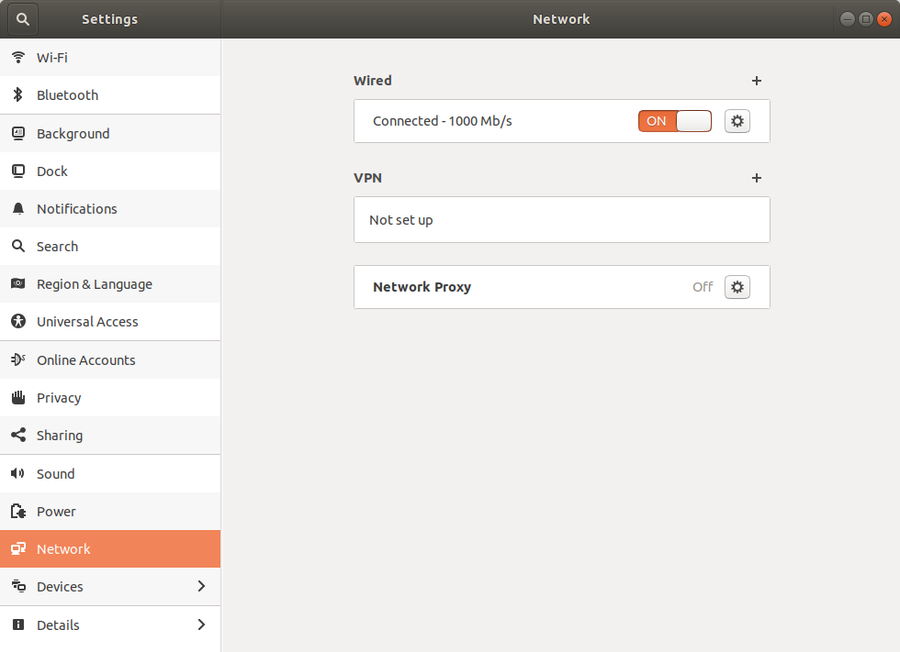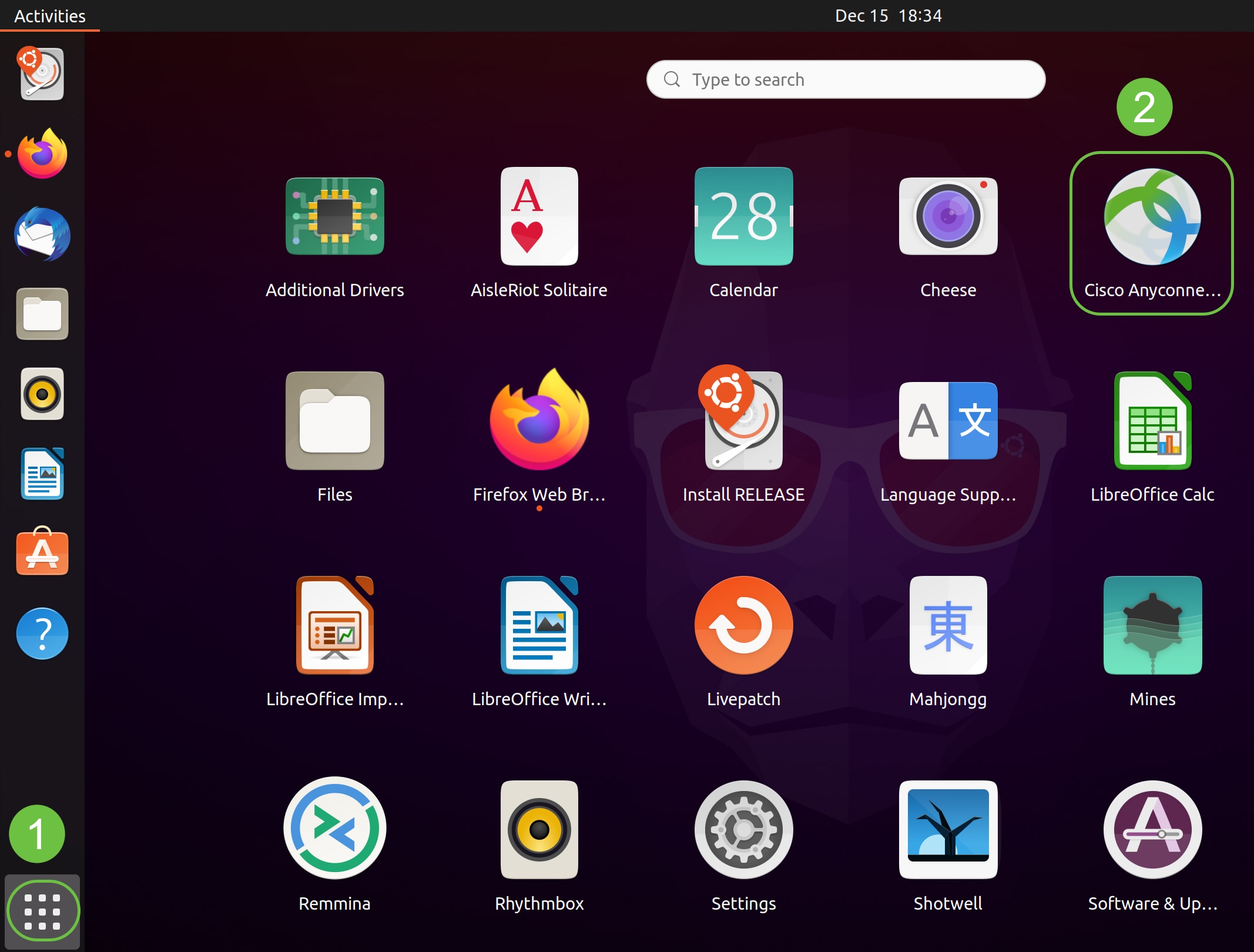Cisco AnyConnect Secure Mobility Client 4.0 supports the following versions of Linux operating system: - Red Hat 6 (64-bit) - Ubuntu 12.x (64-bit).The AnyConnect. Cisco AnyConnect Alternatives for Linux. There are many alternatives to Cisco AnyConnect for Linux if you are looking to replace it. The most popular Linux alternative is OpenVPN, which is both free and Open Source. If that doesn't suit you, our users have ranked more than 25 alternatives to Cisco AnyConnect and eight of them are available for.
Topics Map > Networking > Virtual Private Networking (VPN)We have installed Cisco AnyConnect VPN Client version 2.5.0217 for window and Linux machine. It works fine on Windows but not Red Hat Linux. Here are the error, anyone has any clue for this issue? Thanks in advance for your time and help. Gy root@phrsuburban bin#./vpn connect 65.210.63.20. Cisco AnyConnect VPN Client (version 2.5.0217). A vulnerability in the HostScan component of Cisco AnyConnect Secure Mobility Client for Linux could allow an unauthenticated, remote attacker to read sensitive information on an affected system. The vulnerability exists because the affected software performs improper bounds checks. An attacker could exploit this vulnerability by crafting HTTP traffic for the affected component to download.
This page contains links to download and installation instructions for VPN software for Linux.
University of Illinois students, faculty, and staff can use these directions to set up some Linux computers or devices to connect to the Virtual Private Network (VPN).

Cisco-supported Versions
Some versions of Red Hat Linux and Ubuntu are compatible with the Cisco AnyConnect VPN client. See the AnyConnect 4.8 Release Notes for a detailed listing of which versions and features are supported.

Downloading the VPN software
From the WebStore, download the VPN software that applies to your system's hardware (only 64 bit is supported in the 4.x software).
If you are using Ubuntu, you may also need to install the OpenConnect Network Manager in order to make the GUI work correctly:
for Ubuntu 16 try:
for older versions of Ubuntu, this command might be needed.
The information below has been modeled on the University of California at Irvine instructions provided at:
Additional troubleshooting tips are available there.
Red Hat Linux
As root, first unzip and untar the file, then run the vpn_install shell script. [Note the file name and directory name will change as the version changes. The example below was from version 4.3.05017.]
The vpn client will be installed on your system and the vpnagentd process will be started. This process will be started each time your system is booted.
Starting the VPN client
To start the VPN client:
Command line:
In a terminal window, type/opt/cisco/anyconnect/bin/vpnuiGnome user interface:
Look for Cisco AnyConnect in the menu system.- Fedora:
Look in Applications -> Internet
The Connect to: box appears.
- Enter vpn.illinois.edu and press return.
When the connection begins, enter the following:
- Group menu: Select 1_SplitTunnel_Default
(Note: This is the most common choice. See About VPN Profiles for information about the alternatives, such as Tunnel All for access to library resources.) - Username: Your NetID
(or, if you're a guest, your guest ID) - Password: Your Active Directory password
(or, if you're a guest, your guest password)
In the box that appears, click Accept.
Cisco Anyconnect Linux Arm
You are now ready to use your VPN connection.
Ubuntu
A good source to help with this: http://www.socsci.uci.edu/~jstern/uci_vpn_ubuntu/
First, extract the files and install as root:
Accept the license agreement when prompted.
Then install the Ubuntu Network Manager plugins (note, even with this package Ubuntu 16 does not support the GUI interface: see https://askubuntu.com/questions/760864/no-more-anyconnect-compatible-vpn-transport-in-ubuntu-16-04 for more information):
To configure the VPN using the Network Manager:
- Click on the 'Network Manager' icon in your System Tray on your desktop.
- In the menu that appears, go to VPN Connections -> Configure VPN
- Click Add.
- Choose Cisco AnyConnect Compatible VPN (openconnect) and click Create.
- Enter the following information:
- Connection name: Tech Services VPN
- Gateway: vpn.illinois.edu
- User name: Leave blank at this point.
- Click Save.
Starting the VPN client
- Click on the 'Network Manager' icon in your System Tray on your desktop.
- In the menu that appears, go to VPN Connections and click Tech Services VPN.
- Click on the connection icon (two screens).
- Enter the following information:
- Group menu: Select 1_SplitTunnel_Default
(Note: This is the most common choice. See About VPN Profiles for information about the alternatives.) - Username: Your NetID
(or, if you're a guest, your guest ID) - Password: Your Active Directory password
(or, if you're a guest, your guest password)
- Group menu: Select 1_SplitTunnel_Default
- Click Login.
sudo service network-manager restart
sudo service networking restart
Disconnecting the VPN client
- Click on the 'Network Manager' icon in your System Tray on your desktop.
- Go to VPN Connections -> Disconnect VPN.
 Skip to end of metadataGo to start of metadata
Skip to end of metadataGo to start of metadataAnyConnect Support for Linux
Cisco AnyConnect Secure Mobility Client 4.0 supports the following versions of Linux operating system:
- Red Hat 6 (64-bit)
- Ubuntu 12.x (64-bit)
***The AnyConnect GUI is not supported on all Linux distributions. When the GUI is supported, it's appearance is the same as the AnyConnect version 2.5 GUI.
Linux Requirements
- x86 instruction set.
- 64-bit processor.
- 32 MB RAM.
- 20 MB hard disk space.
- Superuser privileges are required for installation.
- libstdc++ users must have libstdc++.so.6(GLIBCXX_3.4) or higher, but below version 4.
- Java 5 (1.5) or later. The only version that works for web installation is Sun Java. You must install Sun Java and configure your browser to use that instead of the default package.
- zlib - to support SSL deflate compression
- xterm - only required if you're doing initial deployment of AnyConnect via Weblaunch from ASA clientless portal.
- gtk 2.0.0. .
- gdk 2.0.0.
- libpango 1.0.
- iptables 1.2.7a or later.
- tun module supplied with kernel 2.4.21 or 2.6.
Cisco Anyconnect Linux Install
AnyConnect Installation Instructions for Linux
- Go to https://ramsvpn.vcu.edu and login using your VCU eID and password, and preferred DUO two factor authentication method.
- Click the AnyConnect VPN link to download the installer file.
- Save the AnyConnect installer package to your local computer.
- Find the file downloaded named vpnsetup.sh.
To run the shell executable file named vpnsetup.sh: Open a terminal window and change directories to the directory where vpnsetup.sh is saved, and then type:
sudo sh vpnsetup.sh
- Open AnyConnect. Enter ramsvpn.vcu.edu in the connection bar. Enter your eID and password. Second Password depends on your preferred 2nd factor authentication option (see Authentication Options). Click “Connect”.
- Click “Accept”.
ATTENTION:
There are known issues with the Cisco AnyConnect client on various Linux distros. For this reason, we suggest using OpenConnect for Linux. OpenConnect is free and open source SSL VPN client software initially created to support Cisco's AnyConnect SSL VPN.
